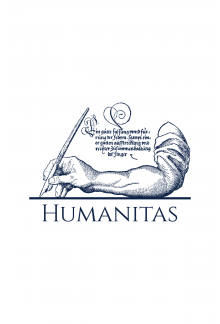- Home
- All Categories
- Academic, Professional Literature
- Medicine
- Medicine: General Subjects
- Buck's 2022 ICD-10-CM for Hospitals

Buck's 2022 ICD-10-CM for Hospitals
Published: 2021
Publisher: Elsevier
Language: English
Format: Spiral bound
Format: 10.875×8.5
<p>Selecting diagnosis codes is faster and easier with<b> Buck's 2022 ICD-10-CM for Hospitals</b>. Designed <i>by</i> coders <i>for</i> coders, this full-color manual includes all the ICD-10 codes that you need for today’s inpatient coding. As coders need extensive knowledge to code with ICD-10-CM — and to choose from the thousands of possible codes — this edition makes it easier with colorful anatomy plates (including <i><b>Netter’s Anatomy</i> illustrations) </b>to help you understand anatomy and how it can affect your code choices. In addition, i<b>t comes with durable spiral binding, and includes a companion website with the latest coding updates.</p></b><ul> <li><b>At-a-glance <i>Guide to the 2022 ICD-10-CM</i></b><i> <b>Updates</b></i> in the front of the book lists all new, revised, and deleted codes, providing at-a-glance lookup of the coding changes.</li> <li><i><b>Official Guidelines for Coding and Reporting </b><b>(OGCRs)</b></i> are listed in full in the Introduction, at the beginning of each chapter, and integrated within the code set, providing easier reference to coding rules when they are needed most.</li> <li><b>Unique!<i> </i>Full-color anatomy plates (including </b><i><b>Netter’s Anatomy</b></i><b> art) are</b> included in a separate section for easy reference and cross-referenced within the <i>Tabular List of Diseases and Injuries</i>, to help users understand anatomy and how it may affect choosing codes.</li> <li><b>Full-color design includes consistent color-coded symbols and text</b>, providing easier access to codes and coding information.</li> <li><b>American Hospital Association's<i> Coding Clinic</i><SUP>®</SUP></b> <b>citations </b>include official ICD-10-CM coding advice relating to specific codes and their usage.</li> <li><b>191 </b><b>illustrations provide </b>visual orientation and enhance understanding of specific coding situations.</li> <li><b>Items</b> <b>are included throughout the <i>Tabular List</i></b> to ensure accurate coding, providing additional information on common diseases and conditions.</li> <li><b>Additional elements within specific codes define terms and add coding instructions </b>relating to difficult terminology, diseases and conditions, or coding in a specific category.</li> <li><b>Symbols and </b><b>highlights</b> draw attention to codes that may require special consideration before coding, including:</li> <ul> <p> <li>new, revised, and deleted</li> <li>Unacceptable Principle Diagnosis</li> <li>Codes that call for the use of additional character(s)</li> <li>Includes, Excludes 1 and Excludes 2</li> <li>Use Additional</li> <li>Unspecified</li> <li>Code First and Code Also</li> </ul><b> </b> <li><b>Placeholder X symbol</b> reminds users to assign placeholder X for codes less than 6 characters that require a 7th character.</li> <li><b>CC (Complications & Comorbidities) and MCC (Major CC) symbols</b> identify codes associated with the presence of secondary diagnoses from MS-DRGs, and call attention to CC and MCC exceptions.</li> <li><b><i>Hospital Acquired Condition</i> symbol </b>clearly identifies conditions that will always be coded as hospital acquired.</li> <li><b>Manifestation code symbol</b> identifies conditions for which it is important to record both the etiology and the symptom of the disease.</li> <li><b>HCC symbol </b>indicates diagnoses in the <i>Tabular List</i> associated with Hierarchical Condition Categories.</li> <li><b><i>Age and Sex </i>edits</b> from the <i>Definition of Medicare Code Edits</i> help to ensure accuracy by denoting codes that are used only with patients of a specific age or sex.</li></ul><ul><b></b> <li><b>NEW! Updated</b> <b>2022 Official Code set</b> reflects the latest ICD-10 codes needed for diagnosis coding.</li></ul>
